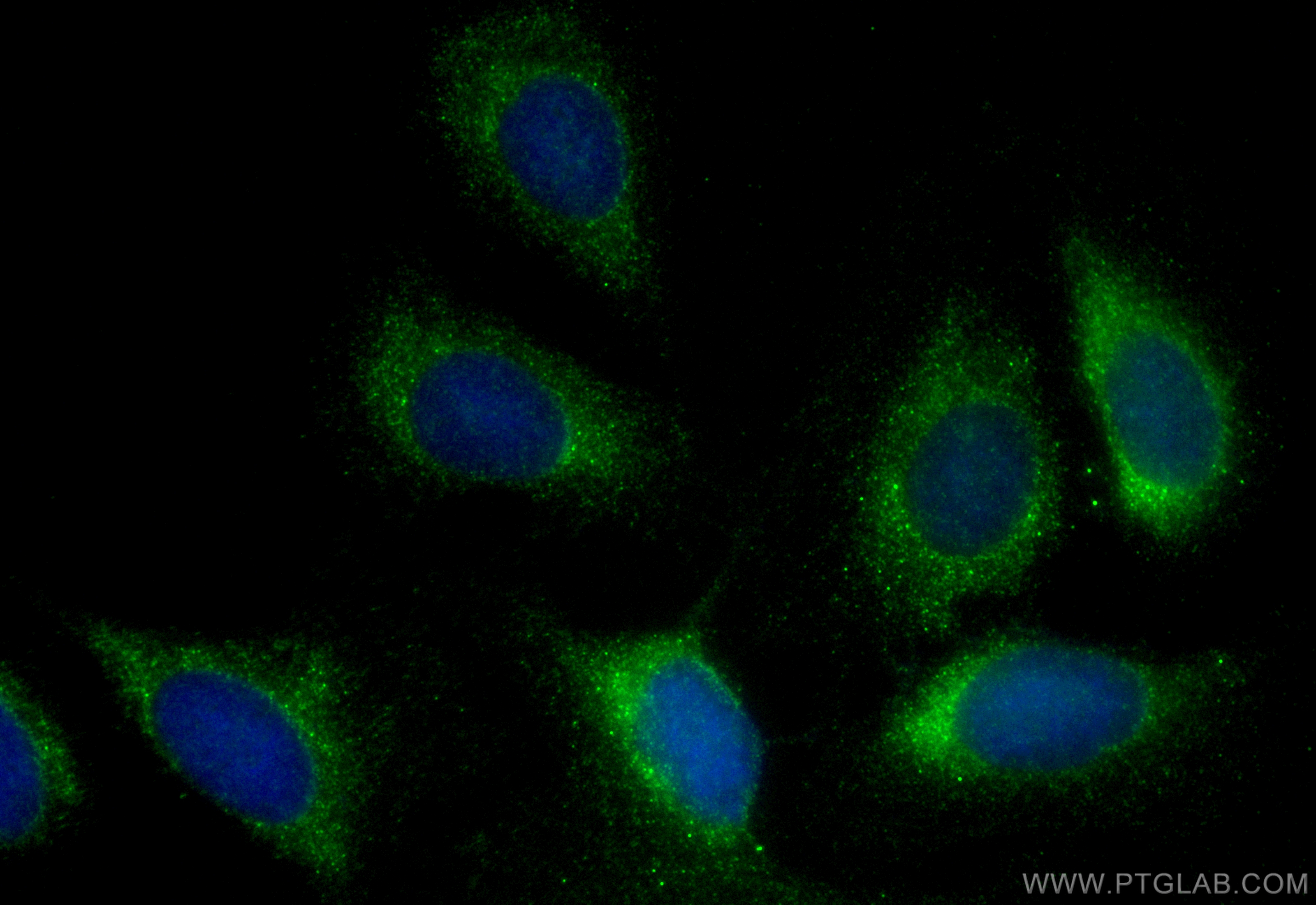验证数据展示
经过测试的应用
| Positive IF/ICC detected in | U2OS cells |
推荐稀释比
| 应用 | 推荐稀释比 |
|---|---|
| Immunofluorescence (IF)/ICC | IF/ICC : 1:50-1:500 |
| It is recommended that this reagent should be titrated in each testing system to obtain optimal results. | |
| Sample-dependent, Check data in validation data gallery. | |
产品信息
CL488-68489 targets OTUB1 in IF/ICC applications and shows reactivity with human, mouse, rat samples.
| 经测试应用 | IF/ICC Application Description |
| 经测试反应性 | human, mouse, rat |
| 免疫原 | OTUB1 fusion protein Ag33132 种属同源性预测 |
| 宿主/亚型 | Mouse / IgG2a |
| 抗体类别 | Monoclonal |
| 产品类型 | Antibody |
| 全称 | OTU domain, ubiquitin aldehyde binding 1 |
| 别名 | |
| 计算分子量 | 31 kDa and 35 kDa |
| 观测分子量 | 31-35 kDa |
| GenBank蛋白编号 | BC007519 |
| 基因名称 | OTUB1 |
| Gene ID (NCBI) | 55611 |
| RRID | AB_3673022 |
| 偶联类型 | CoraLite® Plus 488 Fluorescent Dye |
| 最大激发/发射波长 | 493 nm / 522 nm |
| 形式 | Liquid |
| 纯化方式 | Protein A purification |
| UNIPROT ID | Q96FW1 |
| 储存缓冲液 | PBS with 50% glycerol, 0.05% Proclin300, 0.5% BSA , pH 7.3 |
| 储存条件 | Store at -20°C. Avoid exposure to light. Stable for one year after shipment. Aliquoting is unnecessary for -20oC storage. |
背景介绍
OTUB1 belongs to the ovarian tumor domain protease (OTU) subfamily of deubiquitinases, which could block ubiquitination leading to protein stability. OTUB1 mainly prefers k-48 and k-63 ubiquitin chains type, especially in k-48 ubiquitin chain. OTUB1 performs its deubiquitinating function via two distinct manners: the canonical and non-canonical manner. OTUB1 is involved in many critical immune response processes, containing CD8 T cell activation, PD-L1 related immune evasion, and several infectious diseases. OTUB1 plays an important role in the occurrence, proliferation, invasion, and progression of various cancers, such as bladder cancer, breast cancer, prostate cancer, and colorectal cancer (PMID: 34875341, 35296795). OTUB1 has 2 isoforms with molecular weights of 31 and 35 kDa, respectively.
实验方案
| Product Specific Protocols | |
|---|---|
| IF protocol for CL Plus 488 OTUB1 antibody CL488-68489 | Download protocol |
| Standard Protocols | |
|---|---|
| Click here to view our Standard Protocols |
